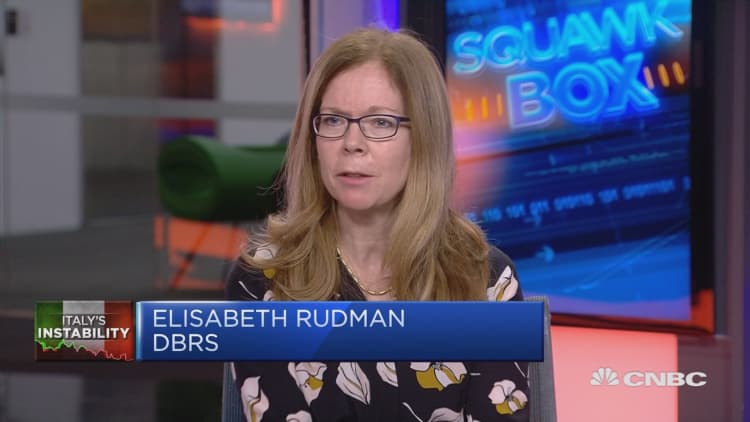Italian banking shares moved higher on Monday following reports that their capital positions are above the levels required by the European Central Bank – in what analysts have described as "not so bad news."
Italian banks have been at the forefront of many investors' concerns. Since the appointment of the current anti-establishment government and the subsequent promises to increase public spending, money managers have been worried that the country could be in trouble given its high level of public debt. These concerns have raised Italy's borrowing costs and added pressure on the profitability of Italian banks.
Furthermore, recent data has also shown that the economy has entered a technical recession in the last quarter of 2018. Lower economic activity could restrict the bank's ability to make business. Credit rating agency Moody's warned last week that if the recession were to continue over the coming quarters there would be "negative consequences for banks including negative effects on performance, higher nonperforming loan (NPL) inflows, and ultimately banks' capital."
However, news that the capital positions of certain banks are higher from what regulators have demanded has brought some relief.
Shares in Banco BPM rose above 7 percent, Ubi Banca jumped 4 percent and UniCredit moved nearly 3 percent higher.
"After consistent negative news impacting the whole European banking sector, we have finally seen some 'not bad' news," Tom Kinmonth, fixed income strategist at ABN Amro told CNBC via email on Monday.

UniCredit, for example, was requested by the ECB to have a 10.07 percent of Common Equity Tier 1 (CET 1) ratio as of March 1. At the end of 2018, the bank had a 12.13 percent CET 1 ratio.
Tier 1 capital ratio is the ratio of a bank's core equity capital to its total risk-weighted assets. More simply, it's the level of reserve funding that a bank can call on to mitigate against sudden shocks or losses.
Banco BPM said the ECB requested a CET 1 ratio of 9.31 percent this year. It also said that as of the end of 2018, its CET 1 ratio stood at 12.1 percent.
This data is not publicly disclosed by the ECB. Banks can decide whether to publish the requirements set by the regulators.
According to Kinmonth, Italian banks have been given requirements which are largely the same as those requested in the previous year, indicating that banks do not need to increase their capital positions.
"All the main banks now comfortably exceed the minimum thresholds set by ECB and therefore face no restrictions on dividend distributions, bonuses or capital coupon payments. The fact there is not an increase (which would be costly to a bank), is being taking as a positive by markets," Kinmonth added.
Fabio Trussardi, analyst at UBS global wealth management told CNBC Monday that shares were higher because "the ECB decision means some theoretical capital relief (through lower capital requirement)...and because it means that the regulator is satisfied with the banks' progress in the non-performing loans' reduction."
Since the start of the year, shares of UniCredit and Intesa Sanpaolo are up by about 6 percent and 4 percent respectively. Meanwhile, in the same time frame, shares of Banco BPM are down by 6 percent, while Ubi Banca is down 13 percent.


